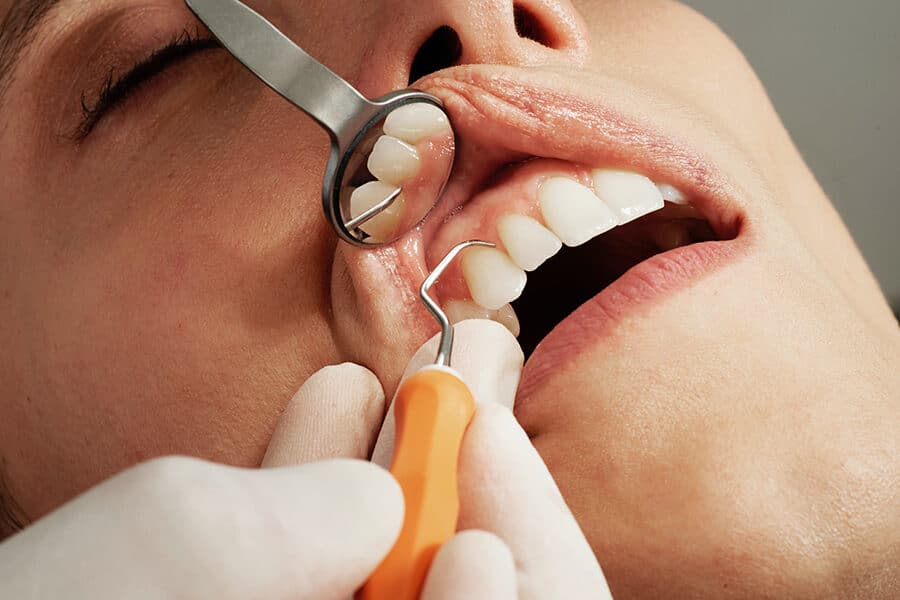Keeping your oral health up to par is important for keeping your teeth healthy and preventing certain infections and diseases that affect your gums such as gingivitis. Gingivitis is a mild form of gum disease identified by inflamed gingiva and possible irritation and redness. Your gingiva is the area of gum surrounding the base of your teeth. When gingivitis becomes present in your gums, it is extremely important to start getting treatment for it as soon as possible. This is because while it is a mild disease, it can lead to a more severe gum disease called periodontitis as well as increased susceptibility to severe tooth decay.
Causes and Life Cycle of Gingivitis
Gingivitis stems from poor oral hygiene. When bacteria in your mouth sits for an extended period of time plaque begins to form. As plaque sits in your mouth, it goes through a process of hardening over the course of a few days. During this time it migrates and sits in your gums and turns into tartar/calculus. Tartar is a breeding ground for bacteria and is very hard to get rid of, requiring a professional cleaning to fully remove. If you let tartar sit in your gum line for an extended period of time, your gingiva will begin to get irritated and your condition will worsen until it is removed. This when gingivitis and ultimately periodontitis occurs. Eventually, severe tooth decay and even tooth loss can occur.
What Are Some Signs of Gingivitis?
Since gingivitis is a disease that affects the gums, you want to examine your gum area to find signs that you may be developing the condition. For reference, gums in good condition encase your teeth tightly, have a firm texture and are a pale pinkish color.
Here’s what to look out for:
- Tender, Soft gums
- Swollen or Puffy Looking Gums
- Gums with a deeper red color
- Gums easily bleeding when brushing/flossing
- Noticeably receding gum line
How Can I Prevent Gingivitis?
Many factors can lead to gingivitis. Unfortunately, some are out of your control, but many of the risk factors you can manage yourself. Here are some of the more common causes that affect gingivitis development:
- Smoking / Chewing Tobacco
- Poor Nutrition, especially a lack of vitamin C
- Misaligned Teeth or Improper Dental Work
- Certain drugs, especially those used for epilepsy and high blood pressure, among other conditions
- Old Age – naturally our teeth break down easier as we get older
- Hormonal Changes, especially in those who are pregnant or on certain types of birth control
- Genetics – some people are naturally born to be more susceptible to gingivitis
What Kind of Treatment Can I Get For Gingivitis?
As mentioned earlier, the sooner you get treatment the easier it is to improve your oral health and can protect your gingivitis turning to periodontitis. Gingivitis occurs in roughly 75% of Americans, so you are more likely to experience it at some point in your life. This also means that your dentist and their team are trained to deal with the disease through treatment catered to your needs. When treating gingivitis the goal is to regain healthy gums and stop the severity of the disease from increasing.
Your dentist may prescribe you some form of medication to help treat gingivitis. Examples of what they may treat you with include:
- Professional Cleaning
- Oral Antibiotics
- Antiseptic Mouthwash
- Scaling & Root Planing
- Bone & Tissue Grafts may be necessary if the gum line has worsened to a unhealable state
You can discuss many surgical and non-surgical options with your dentist to see which one is the best for your specific needs depending on what stage you are at with gingivitis. Feel free to contact Capozzi Dental with any questions or to schedule an appointment!



